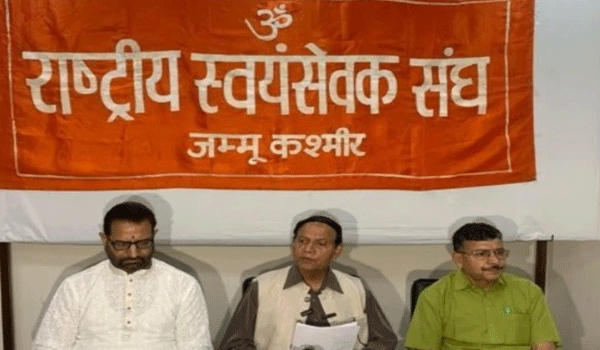The article, authored by Teena Thacker and published on June 7, 2025, reports on a directive issued by the Directorate General of Health Services (DGHS) on May 28, 2025. The order bans Medical Representatives (MRs) from physically entering Central Government Hospitals, aiming to curb the “doctor-pharma nexus” by restricting direct contact. Instead, MRs are instructed to share medical advancements via email or other digital media. The DGHS, led by Dr. Sunita Sharma, justifies the move as a measure to prevent disruptions, prohibit undue influence through gifts, and ensure patient care remains uncompromised. The decision aligns with the Department of Pharmaceuticals’ (DoP) Uniform Code for Pharmaceutical Marketing Practices (UCPMP) 2024, which regulates ethical interactions in the sector. The article notes concerns that the pharma-doctor nexus disproportionately affects poor patients, who may not receive optimal treatment due to biased prescribing practices. Both the government and pharmaceutical industry have been urged to review and strengthen regulatory frameworks.
**Key Points:**
1. **Objective of the Ban:** To stop unethical practices, such as offering gifts to influence doctors, and prioritize patient care in Central Government Hospitals.
2. **New Communication Mode:** MRs must now use email or digital media to share medical advancements, ending direct interactions.
3. **Supporting Regulations:** The UCPMP 2024 already governs ethical marketing practices, and this ban reinforces those guidelines.
4. **Impact on Patients:** The article highlights that poor patients often suffer due to the pharma-doctor nexus, as doctors may prioritize promoted drugs over optimal treatments.
5. **Call for Review:** The government has sought hospital feedback on using digital channels for information sharing, while the pharma industry is asked to reassess its marketing practices.
Comment on the Directive
The DGHS directive is a well-intentioned step to address ethical concerns in healthcare, particularly the influence of pharmaceutical companies on prescribing practices. By restricting direct contact, the government aims to protect clinical integrity and ensure that treatment decisions prioritize patient welfare over commercial interests. The move aligns with existing regulations like the UCPMP 2024, which already prohibits gifts and inducements, indicating a broader push for transparency in the sector.
However, the blanket ban raises concerns about its practicality and potential unintended consequences. Medical Representatives play a crucial role in disseminating scientific updates, regulatory notices, and information on affordable generics—particularly in under-resourced hospitals. Shifting entirely to digital communication may limit access to timely information, especially in areas with poor digital infrastructure. Additionally, the lack of consultation with stakeholders, such as MR unions, risks alienating a key workforce and could disrupt the healthcare ecosystem. A more balanced approach, such as regulated in-person access with strict oversight, might better serve the dual goals of ethics and efficiency.
Reactions from Trade Unions and Political Parties
**Trade Unions:**
– **Bharatiya Medical and Sales Representatives Mahasangh (BMSRM):** As noted in the memorandum dated June 1, 2025, the BMSRM, affiliated with the Bhartiya Mazdoor Sangh (BMS), strongly opposes the ban. They argue that it violates their professional rights under Article 19(1)(g) of the Indian Constitution and ILO Conventions 87 and 98, which protect freedom of profession. The union highlights the role of MRs in supporting doctors with scientific data and affordable treatment options, especially in rural areas. They propose regulated access (e.g., appointment-based entry, supervised meetings) and stricter enforcement of existing ethical norms instead of a complete ban.
– **All India Drug Action Network (AIDAN):** This trade union, focused on rational drug use, likely supports the DGHS directive, as it aligns with their advocacy for ethical prescribing practices. AIDAN has historically criticized the pharma-doctor nexus for promoting irrational drug use, which harms patients, particularly the poor. They might, however, call for stronger digital infrastructure to ensure doctors still receive necessary updates.
– **Federation of Medical Representatives’ Associations of India (FMRAI):** The FMRAI, a prominent union, is expected to echo BMSRM’s concerns. They may argue that the ban threatens the livelihoods of thousands of MRs and disrupts the flow of critical drug information. FMRAI might also demand dialogue with the government to devise a more inclusive policy.
**Political Parties:**
**Bharatiya Janata Party (BJP):** As the ruling party in 2025, the BJP likely supports the DGHS directive, given its issuance under their administration. The party has emphasized healthcare reforms and anti-corruption measures, so this ban aligns with their narrative of curbing unethical practices. However, they may face pressure from trade unions and could push for amendments to address stakeholder concerns while maintaining the ban’s core intent.
**Indian National Congress (INC):** The Congress might take a balanced stance, acknowledging the need to address the doctor-pharma nexus but criticizing the government for a unilateral decision. They could advocate for greater consultation with MRs and hospitals, emphasizing the need to protect workers’ rights while ensuring ethical practices.
-**Aam Aadmi Party (AAP):** AAP, with its focus on healthcare accessibility, might support the ban in principle but express concerns about its impact on rural hospitals. They could push for alternative solutions, such as government-led platforms to disseminate drug information, ensuring doctors in underserved areas aren’t left without updates.
-**Communist Party of India (Marxist) (CPI(M)):** The CPI(M), often aligned with workers’ rights, is likely to oppose the ban, arguing it infringes on MRs’ professional freedoms. They may criticize the government for favoring corporate interests (by shifting to digital platforms that benefit larger companies) while neglecting smaller MRs and rural healthcare needs.
Overall, the directive has sparked a polarized response, with trade unions advocating for MRs’ rights and political parties weighing the ethical benefits against practical challenges. The government may need to engage in broader consultations to find a sustainable solution.


